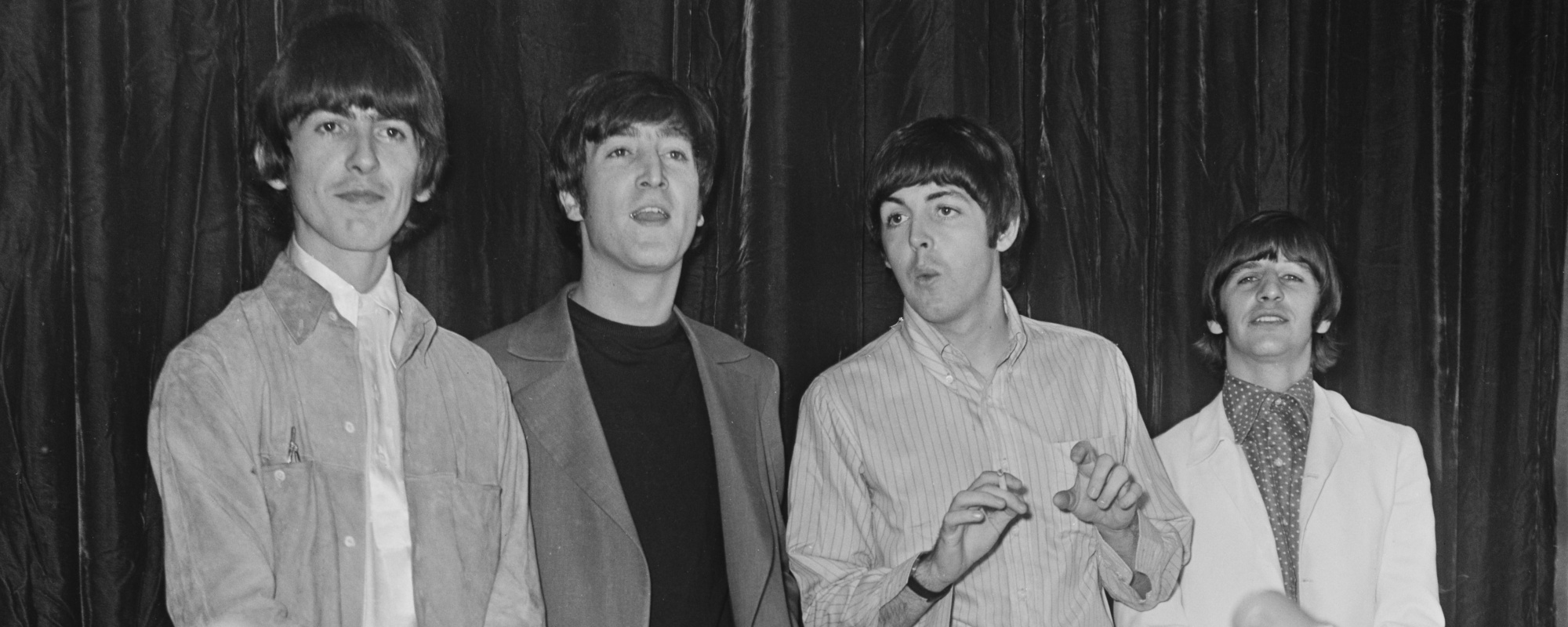In the annals of rock and roll, no album combines the excellence of its contents with the unlikeliness of its journey to classic status quite like Odessey and Oracle. It sank without a trace upon its release, and only gained acclaim many years after the band who made it, The Zombies, had imploded.
Videos by American Songwriter
Thankfully, Odessey and Oracle has now ascended to its proper place in music history as an album that can stand toe-to-toe with other massive rock albums from the same era. Let’s go back to the beginning and follow the winding path taken by this incredible record.
They’re Not There
The Zombies formed in St. Albans, England, in 1961 and boasted a few elements that their British Invasion peers lacked: the keyboard virtuosity of Rod Argent and the innate ache in the vocals of lead singer Colin Blunstone. And it wasn’t long before those qualities paid dividends, thanks to the massive hit “She’s Not There,” a moody, jazzy marvel that soared to No. 2 in the US.
But after another Top 10 hit with “Tell Her No,” the band struggled to maintain that success, in part because of a lack of support from Decca Records. Their money issues grew to the point that they found themselves playing shows in the Philippines to make ends meet. Decca dumped them, but CBS Records agreed to give them a minimal amount to go and make an album for them in legendary Abbey Road studios.
In fact, the group arrived in the studio not long after The Beatles had finished Sgt. Pepper’s Lonely Hearts Club Band. Because their low budget precluded them from hiring any outside musicians, the band commandeered John Lennon’s Mellotron to come up with sounds to fill out the songs. Time restrictions in the studio were also exacting.
Somehow, with all those limitations in place, The Zombies pulled together for a masterpiece. Argent and Chris White switched up songwriting duties, and each brought different sensibilities to the table. Argent served up unexpected musical turns and lyrical quirks to the prison-romance pop song “Care of Cell 44” and the loneliness-drenched ballad “A Rose for Emily.” White provided an unerring pop sensibility to “Our Year” and “Friends of Mine.” Closing track “Time of the Season” brought the album to a close on the psychedelic breeze still wafting about from the Summer of Love.
It seemed like a no-brainer hit, but it wasn’t. A pair of singles (neither of which was “Time of the Season”) did nothing in the UK. Tensions started to spring up among the band over this lack of success. By the time Odessey and Oracle was released in April 1968 (with the title unintentionally misspelled—it should be Odyssey), The Zombies were kaput.
Super Kooper to the Rescue
Al Kooper always seemed to turn up in rock and roll history when least expected, yet he always made key contributions when he did. He was working A&R at the time for Clive Davis at CBS Records in America. During a trip to London, he picked up a bunch of records, and one of them was Odessey and Oracle. He told Davis CBS should buy the record, only to find that they already owned it.
Upon Kooper’s urging, the company finally released the album in the U.S. in June 1968 on a smaller CBS subsidiary called Dale Records. When some DJs picked up on “Time of the Season,” it became a belated U.S. hit single, reaching No. 3 on the Billboard chart. And still, the album, while on the map, didn’t quite break out.
As The Zombies went their separate ways (Argent and White formed the prog-rock band Argent and Blunstone eventually dove into a singer/songwriter career), the album fell into relative anonymity, despite “Time of the Season” remaining an oldies staple. Luckily, word of mouth via famous musician fans like Tom Petty helped to keep Odessey and Oracle afloat.
Zombies reunions with various combinations of the original members began surfacing in the late ’80s. Different anniversaries of the release of Odessey and Oracle also brought it to the forefront again. The Zombies eventually found themselves in the Rock and Roll Hall of Fame, with their once-forgotten album as their major recommending factor.
The story is proof that quality will eventually win out, even if it takes a while. The Zombies, with Argent and Blunstone leading the way, still record and perform. Thanks to Odessey and Oracle‘s refusal to stay hidden, this band’s time of the season has been extended far more than anyone could have expected.
When you purchase through links on our site, we may earn an affiliate commission.
Photo by Rick Diamond/Getty Images













Leave a Reply
Only members can comment. Become a member. Already a member? Log in.